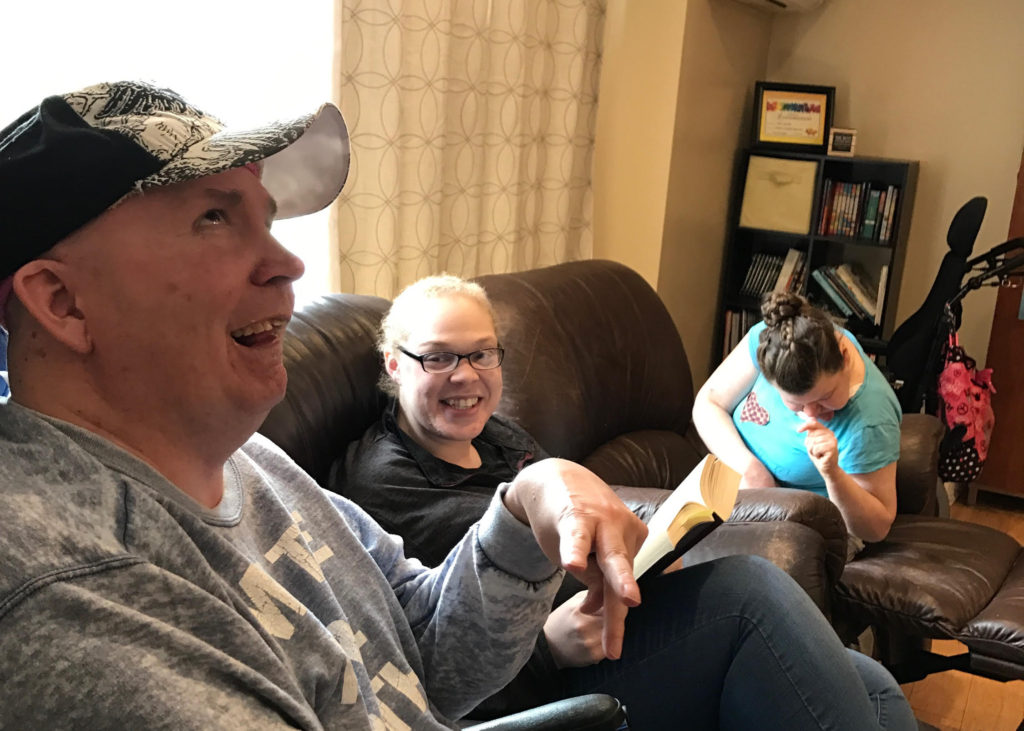From Capstone Project to MA in Social Work at ACR
Samantha Dunbar was a Family Social Science major at the University of Minnesota when she first heard a classroom presentation about ACR Homes. She realized that the hours required for her senior capstone project could be met through her work at ACR, so she applied and got hired in October 2013. After finishing undergrad studies, she continued with ACR and soon discovered the social work field. She returned to the University of Minnesota to complete her Master’s in Social Work while maintaining her work with residents at the ACR Home on Amble.
 ACR was the foundation for my desire to go into social work
ACR was the foundation for my desire to go into social work
Samantha explains her journey to becoming a social worker:
I saw how things were sometimes so difficult for my residents in the community—places without wheelchair accessible door buttons or ramps—and that sometimes professionals and providers had little to no idea how to work with people with disabilities. I wanted a career where I could provide support and also treat each individual with respect.
Kaplan Fellowship for Traumatic Brain Injury
I applied for a Kaplan fellowship because of my experience at ACR working with a resident with a Traumatic Brain Injury. I got the fellowship and as a result my 2nd year internship needed to relate to working with people with TBIs. It’s so interesting to learn more about the brain and then I carry it over to how it affects the residents I know at ACR. It’s helped me to understand the brain more, and to have more understanding and an even greater appreciation for the residents I work with.
Social Work skills gained at ACR
I consider people who work for ACR as “mini-social workers.” Working here, you get to experience charting and maintaining records, and you get really good at clear and specific documentation. You have the ability to work with different entities—nurses, guardians, day programs, clinics. You communicate with your residential supervisor and have to be diligent in making sure information is passed on to your co-workers. In meetings and appointments, you get to act as an advocate. You get to serve as your residents’ sounding board, or sometimes their calming agent in difficult situations. I had the opportunity to be an on-call supervisor so I learned how to manage and to be more direct. I’ve attended an annual meeting and seen the interactions between all of those professionals.
After graduation this month I’ll be a Licensed Graduate Social Worker. I encourage others to consider the social work field and how working at ACR can help you prepare for it. Social workers are the advocates and the brokers for the services that our residents need. You can work in this field without being interested in nursing, or being an OT or a PT. Social work is the basis of a lot of different services that apply directly to the people supported at ACR.
I’ve put so much effort into working with people with disabilities—it makes sense to continue working and providing for them. I want to be a therapist for “the under dogs”—to be able to show them their worth, their value, and their potential.
To learn more about the Social Work profession and to network with other social work students and social work grads, please join us for a Social Work networking lunch on May 19, 2017, 11am-1pm.
